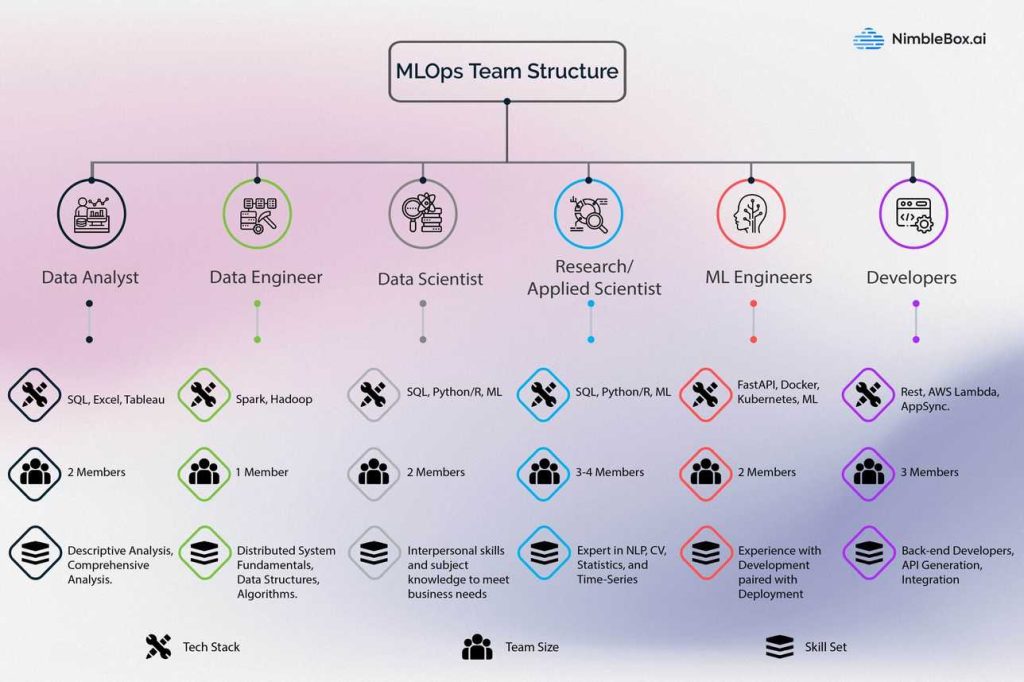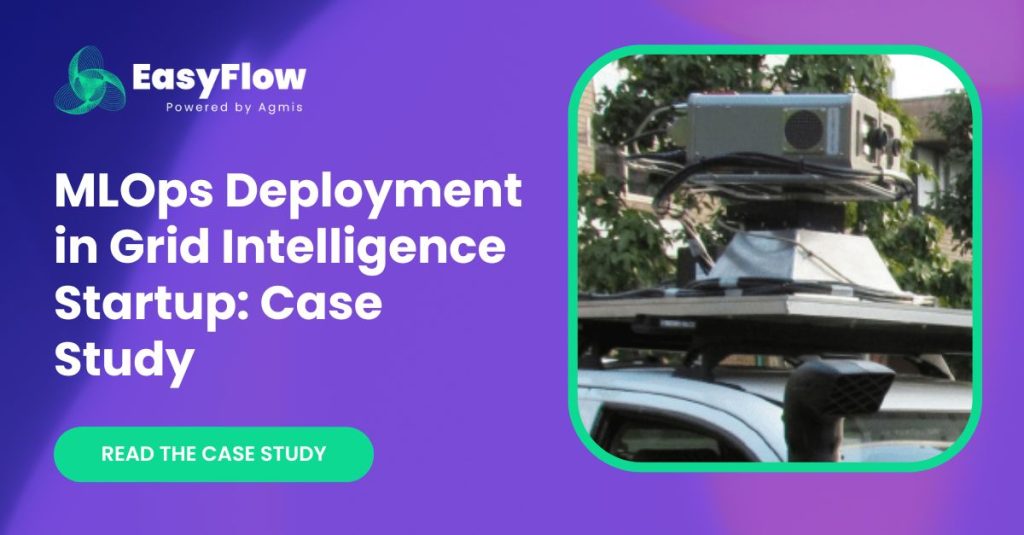Our client, a startup established in 2020, has made significant strides in the field of grid intelligence and is trusted by utility companies around the globe like First Energy, Constellation Energy, Alabama Power, and others.
Their work involves the use of autonomous AI systems on fleet vehicles for large-scale infrastructure assessment, having evaluated over 500,000 poles to date.
Secured $6M in venture capital funding, they are rapidly advancing the frontiers of AI applications in utility management.




Project
Our collaboration with this innovative startup has been extensive, amounting to over 12,000 human hours and counting, reflecting our commitment to delivering profound and lasting impacts through our MLOps services.
Initial Challenges
The startup encountered several specific challenges hindering the efficiency of their machine learning operations:
- Inefficient Training Processes:
Their ML models were primarily trained and coded in Jupyter notebooks, leading to higher operational costs and a lack of systematization. - Data Handling and Model Deployment:
The client struggled with managing vast datasets and deploying models effectively in their dynamic operational environment. - Performance Monitoring and Optimization:
There was an absence of robust systems for real-time monitoring and optimization of the deployed models.
Custom MLOps Strategy
To address these challenges, EasyFlow.tech team provided a comprehensive and tailored MLOps solutions:
- Migration to AWS SageMaker:
We transitioned the training of their primary machine learning models from Jupyter notebooks to specialized machines for model training. This move not only saved costs but also systematized the training process. - Systematized Training Parameters with Database Integration:
Along with systematization, all training parameters were stored in a database (RedShift in the client’s case). This included machine learning model settings, used code, data information, and results like metrics and model weights. - Implementation of Weights & Biases Tool:
To further streamline and automate the workflow, we customized and integrated the Weights & Biases MLOps platform. This allowed for easier tracking of training progress and visualization of key metrics without direct access to the training machines. - Best Practices and Data Synthesis:
We shared best practices and provided advice on data integrity and error analysis. This also included synthesizing defective data from non-defective data for better model training. - Collaborative Work with ML Teams:
Initially, our collaboration involved interactions with the client’s PM, CEO, and data scientist to understand the technical specifics, machine learning model training, and deployment processes. As we progressed, we closely worked with their ML team to align on the best approaches for various tasks.
Outcomes and Value Creation
Our involvement led to several key transformations:
- Cost Reduction:
By moving model training to more efficient systems, we significantly reduced costs. We also optimized model invocation processes. - Process Systematization:
The ML process was streamlined, from adopting best practices in model training to enhanced tracking and management of models. - Knowledge Transfer:
Our collaboration fostered knowledge sharing and experience gain, enabling the client’s team to leverage new insights and expertise.
Importance of MLOps for Startups
MLOps is crucial for startups aiming to scale and evolve rapidly. It bridges the gap between ML model development and operational deployment, aligning technical efficacy with business objectives and scalability.
For startups, where resources are often limited, MLOps provides a structured framework to efficiently manage ML models, ensuring that they remain accurate, relevant, and aligned with evolving business needs.
MLOps also fosters a culture of continuous improvement, innovation, and automation, which is vital for startups to maintain a competitive edge in the data science field.
Also here’s how much you can save on your startup resources by outsourcing MLOps services. I think it’s a clear benefit to outsource rather than build your own team.


Frequently Asked Questions
Conclusion
This case study illustrates the transformative role of MLOps in empowering a grid intelligence startup to overcome operational hurdles and achieve scalable growth.
EasyFlow.tech’s tailored solutions not only streamlined their ML operations but also paved the way for ongoing innovation and development in grid intelligence.
This collaboration underscores our dedication to enhancing MLOps practices, enabling startups to harness the full potential of AI and ML in their journey towards technological advancement and market leadership.
Curious About The Above Solution?
Chat with Vejūnė and explore your possibilities without any commitment.


Vėjūnė Krašinskienė
Chief Operating Officer
Book a no-obligation free consultation with our expert.



